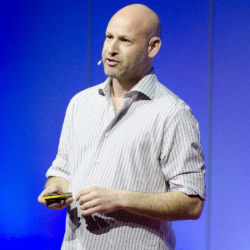

“The launch of komgo SA highlights a shared vision for industry innovation and underlines the ongoing commitment among members to build a truly open and more efficient network within commodity trading.” said Souleïma Baddi, Chief Executive Officer of komgo.
Participants and location
The founders of komgo, where the management and operation will be as an independent entity, include:
- ABN AMRO
- BNP Paribas
- Citi
- Crédit Agricole Group
- Gunvor
- ING
- Koch Supply & Trading
- Macquarie
- Mercuria
- MUFG Bank
- Natixis
- Rabobank
- Shell
- SGS
- Societe Generale.
komgo is a secured platform that intends to be part of an emerging global ecosystem seeking to improve physical commodity operations. komgo has incorporated in Geneva, a primary commodity-based clusters. It believes it will benefit from the support of the Canton de Genève.
komgo’s genesis
The core team of two successful blockchain-based proofs of concept (Easy Trading Connect)- previously tested in energy and soft commodities trading – have joined komgo:
- the first Easy Trading Connect 1 completed in February 2017 with Societe Generale, ING and Mercuria; the prototype demonstrated how this blockchain could enhance real time access to information by all parties, along with efficiency and process security (its core services include the inspection and verification of the quantity, weight, quality of traded goods)
- the second Easy Trading Connect 2 completed in January 2018 in collaboration with Louis Dreyfus Company, ING, Societe Generale and ABN AMRO; this enhanced platform was used to execute a soybean shipment transaction from the United States to China – a transaction which mirrored the paper-based process and which demonstrated significant efficiency improvements for all participants (time spent on processing documents in document processing reduced fivefold).

The intention for komgo is to develop a decentralised Ethereum blockchain-based platform. Its platform will develop in partnership with ConsenSys. Consensys claims to be the largest formation of technologists and entrepreneurs building applications, infrastructure, and solutions on the Ethereum network. Joseph Lubin, Co-founder of Ethereum, and Founder of ConsenSys said: “We are now entering a new era of simple and inclusive access to blockchain technology to advance stronger, more collaborative, business relationships previously out of reach. We are thrilled to see leading commodity trade finance banks and commodity houses come together to create komgo SA, which will radically simplify and accelerate trustworthiness, auditability, and accessibility to trade financing across the industry.”
komgo’s initial offerings
komgo will start with two products, expected to launch before the end of 2018:
- the first will standardise and facilitate KYC process without using a central database (exchanges of documents will execute via encryption over the blockchain on a need to know basis)
- the second involves digital letters of credit.
The latter will enable commodity houses – or other platforms – to submit digital trade data and documents to komgo customer banks of choice. Due to a strong overlap of shareholders between komgo and VAKT, which was incorporated in 2017 to develop a blockchain based post-trade processing platform for commodities, the two companies will explore synergies between the two platforms

“The potential that distributed ledger technologies (DLT) have in transforming the commodities sector is clear as evidenced with the success of the Easy Trading Connect experiments” said Toon Leijtens, Chief Technology Officer of komgo. “We can now achieve a long-term ambition to improve security and operational efficiency in the commodity trade finance sector.”
Enterprise Times: what does this mean?
Prima facie, komgo enters the already cluttered trade finance area (think Batavia, InstaSupply, Commerzbank/Frauenhofer, Marco Polo, and more). There is good reason. Trade finance is slow and costly for both customers and financial institutions, if immensely profitable for the latter. Financial institutions are desperate to prevent the marauding of intruders into a valuable niche.
This there is nothing overtly wrong with the komgo concept (though the name hardly inspires). However, the komgo web site is light on technology detail if full of worthy words.
Is it real? Enterprise Times does not know but presumes it must be given the reputations of the participants. However, for enterprises needing trade finance backed by blockchain technology, there are plenty of other choices.



























[…] one of the supply chain or trade finance networks, for example, Marco Polo or TradeLens, Batavia or komgo, then it might gain greater traction faster. That may come […]